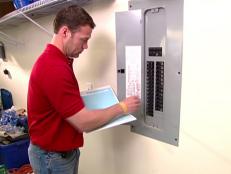Sellers: What to Do When You Get Bad Home Inspection Results
Most real estate freak-outs are the result of surprises. If your place has some obvious imperfections and you put it on the market, it’s no big whoop when the inspectors confirm what you already knew. But when you thought it was in great condition and the inspector says au contraire, that surprise could lead to a freak-out moment of the tallest order.
I Know the Feeling. Bad inspection results are scary because you have no real way to know how the buyer will react. If they’re really bad, the buyer will probably back out. At the very least, you might have to deal with a request for repairs or some other renegotiation. Either way, the shock and surprise of it is sufficient to create a lot of uncertainty. Add that to the helplessness and the suspicion of feeling subject to the whim of the buyer’s inspection team, and it’s enough to cause an ordinarily even-keeled seller tilt off kilter.
Your Mindset Reset. When you get a bad report, inspections can seem like a terrible idea. In fact, anything that uncovers a surprise problem with your house before close of escrow makes you that much less likely to get sued over the problem later on. If you agree to help the buyer with repairs, it’s very common to have them waive liability for later problems in exchange. You can feel more at peace with even bad inspection results when you start to view them as tools you can use to eliminate later lawsuits!
Don’t go tilting at imaginary windmills, Don Quixote-style. Even if you're surprised by the inspection findings, keep mum until the buyer has actually presented you with a request for repairs or a price reduction. You’d be surprised at how many buyers expect their home-to-be to require some elbow grease. They might not interpret the reports as negatively as you do. Even if they do, don’t open the negotiation planning to tell the buyer to take a flying leap. You’re best off if you approach the discussions expecting to strike a compromise that works for both you and them, and that whole 'flies with vinegar' thing applies just as strongly to real estate as it does to everything else in life.
When your home’s buyer does ask you to help resolve the issues, you can instantly feel calmer by asserting some control over the situation. Schedule a chat with your Realtor to review the report and discuss the standard negotiating solutions that are used in your area. Your proactive plan doesn’t stop there. Before you agree to anything, get a couple of bids on the big ticket items from repair companies you choose. You might find that you’re able to create a win-win by having the repair completed for less, and if your cash flow is low, some contractors will even work with you to take payment at close of escrow! If nothing else, having multiple bids will assuage your anxiety that the buyer’s team might have been fluffing the repair costs to get more out of you.
Multiple bids are powerful in other ways too. Sometimes just showing the buyer that the repair may not be as urgent or as costly as they thought can cool both sides down and set the stage for a compromise. And the compromise options are endless: you can do some repairs, give the buyer a credit, reduce the price or do nothing at all, depending on what you can afford.
Your Drama-Free Real Estate Rx. Selling success with minimum drama depends on your ability to accept the things you can’t control (Serenity prayer-style) and your commitment to compromise. If your home’s would-be buyer broaches the issue of repairs, take charge of gathering a more complete set of facts from your own repair vendors, get clear on what you can and can’t afford to do and communicate everything to your agent. Then let go and let your Realtor try to work it out.







































